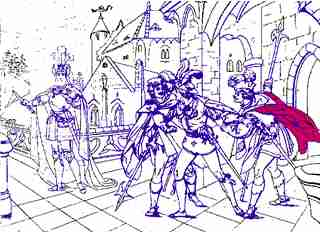![]()
Assuming the ghost is "honest"
 |
While Elizabethan and Jacobean audiences may have felt that ghosts are not to be trusted, the majority of the critics since then have felt just the opposite. They assume that the Ghost is the trustworthy and true spirit of the deceased king, and that Hamlet is correctly compelled to revenge his father's murder. They then concentrate on the psychological or political causes for his delay. Here are some representative statements:
|
Hume, himself could not but have faith in this Ghost dramatically, let his anti-ghostism be as strong as Samson against ghosts less powerfully raised. --Samuel Taylor Coleridge, Notes on the Tragedies of Shakespeare The narrative adds stature to the Ghost. It is the spirit not only of a King but of a renowned King we have seen. --Harley Granville-Barker, Prefaces to Shakespeare Surely it is clear that, whatever we in the twentieth century may think about Hamlet's duty, we are meant in the play to assume that he ought to have obeyed the Ghost. --A.C.Bradley, Shakespearean Tragedy |
Clearly Hamlet has had a life of its own; "independent of the intention and personality of its creator and independent also of the circumstances of the time of its creation" as Jan Kott would say. Times continue to change, however, and, strangely enough, ancient interpretations, largely at odds with the prevailing views of the nineteenth and twentieth centuries are once again exerting their appeal.